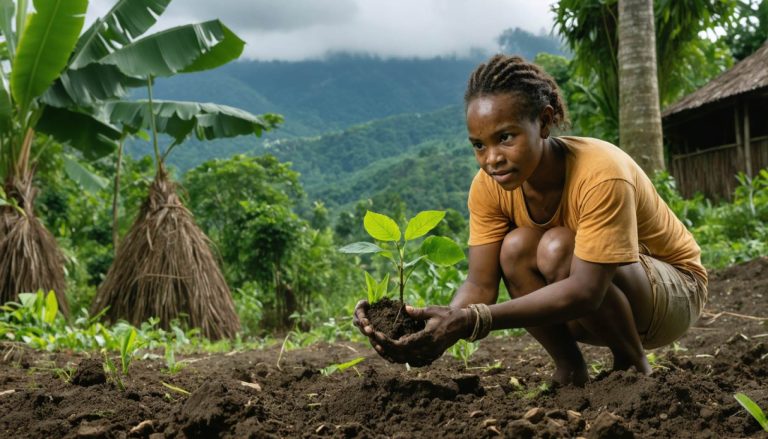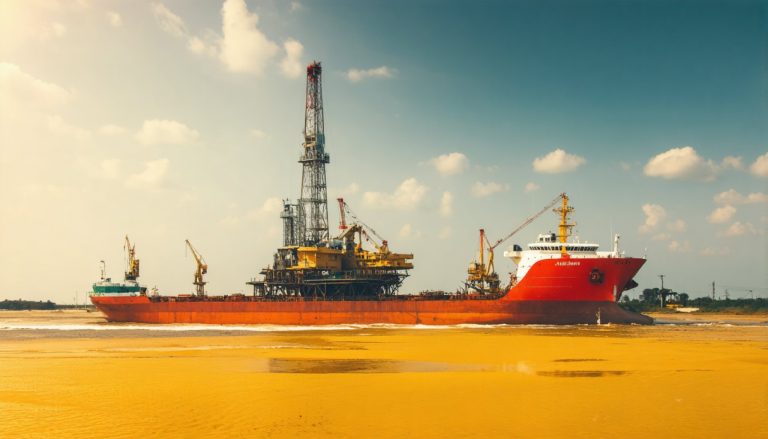
realistic photo of business consulting --ar 16:9 Job ID: cba3f9c9-e540-4b59-8cd0-2f475a45b36d
Guinea-Bissau, a small West African nation, is endowed with rich biodiversity and natural resources. From its lush forests to its abundant marine life, the country holds substantial environmental assets that if managed sustainably, could support long-term ecological health and economic prosperity. This article delves into the Environmental Law and Policy in Guinea-Bissau, examining the current state of legislation, the role of key stakeholders, and the challenges and opportunities faced by the country in this critical sector.
Legal Framework and Policies
The framework of Guinea-Bissau’s environmental law is guided by several key pieces of legislation that address various aspects of environmental protection and management. The primary legislation includes the Environmental Framework Law, which outlines fundamental principles of environmental stewardship, resource management, and sustainable development. Additionally, specific laws and regulations target pollution control, biodiversity conservation, and the management of natural reserves.
Biodiversity Conservation
Guinea-Bissau is home to vast areas of mangroves, coastal ecosystems, and terrestrial habitats that support a diverse array of species. The country has undertaken significant efforts to protect this biodiversity through the establishment of several national parks and protected areas, such as the Orango Islands National Park and the Cufada Lagoon. These efforts are supported by international agreements, such as the Convention on Biological Diversity, to which Guinea-Bissau is a signatory.
Marine and Coastal Policies
The marine and coastal regions are vital to Guinea-Bissau’s economy, particularly for fishing and tourism. The government, collaborating with international partners like the United Nations Environment Programme (UNEP), has implemented policies aimed at protecting marine ecosystems and regulating fishing practices to combat overfishing and illegal fishing activities. Sustainable fishing practices are essential for preserving fish stocks and supporting the livelihoods of local communities.
Challenges and Enforcement
Despite the robust legal framework, enforcement remains a daunting challenge. Limited financial resources, inadequate infrastructure, and a lack of technical expertise hinder effective implementation and compliance. Corruption and weak governance further exacerbate these issues, resulting in continued environmental degradation and unsustainable exploitation of natural resources.
International Cooperation and Support
International support and cooperation play a pivotal role in bolstering Guinea-Bissau’s environmental initiatives. Organizations such as the World Bank, the African Development Bank, and various non-governmental organizations (NGOs) provide financial and technical assistance to strengthen the country’s environmental governance. Projects often focus on capacity building, community-based conservation, and sustainable development practices.
Opportunities for Improvement
To enhance its environmental law and policy effectiveness, Guinea-Bissau must address several areas. Strengthening institutional capacities, improving governance, and increasing public awareness are crucial steps. Moreover, embracing innovative technologies for monitoring and enforcement, such as remote sensing for forest management and satellite tracking for fisheries, can significantly improve resource management.
The Role of Business
The business sector in Guinea-Bissau has a critical role to play in sustainable development. Encouraging responsible corporate behavior, particularly in agriculture, forestry, and mining, is essential for environmental conservation. Businesses must comply with environmental regulations and adopt sustainable practices to mitigate their ecological footprints. There are opportunities for businesses to engage in green initiatives, such as renewable energy projects, eco-tourism, and sustainable agricultural practices, which not only support environmental goals but also create economic benefits.
Conclusion
Guinea-Bissau stands at an important crossroads in its environmental journey. With rich natural resources and a developing legal framework, the country has the potential to become a model for sustainable development in West Africa. However, realizing this potential requires concerted efforts from the government, international community, businesses, and local populations. Through continued commitment to environmental law and policy, Guinea-Bissau can safeguard its natural heritage for future generations while fostering economic growth and development.
Suggested related links about Environmental Law and Policy in Guinea-Bissau:



